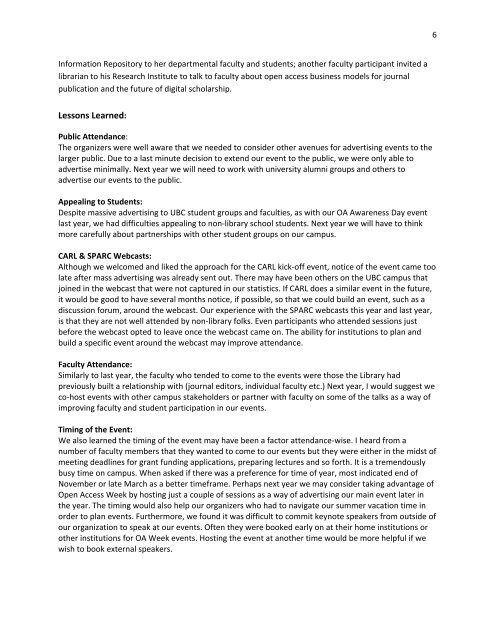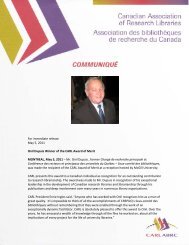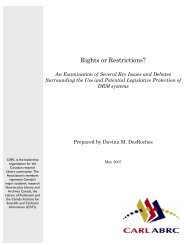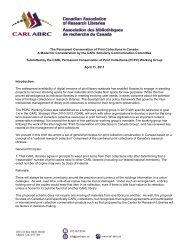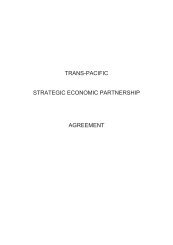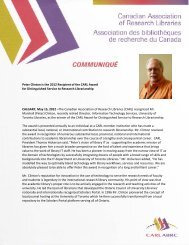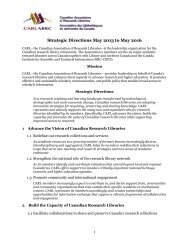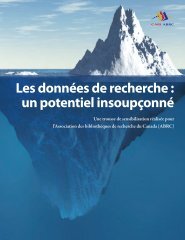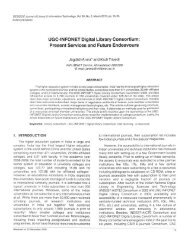PDF - CARL - ABRC
PDF - CARL - ABRC
PDF - CARL - ABRC
Create successful ePaper yourself
Turn your PDF publications into a flip-book with our unique Google optimized e-Paper software.
Information Repository to her departmental faculty and students; another faculty participant invited a<br />
librarian to his Research Institute to talk to faculty about open access business models for journal<br />
publication and the future of digital scholarship.<br />
Lessons Learned:<br />
Public Attendance:<br />
The organizers were well aware that we needed to consider other avenues for advertising events to the<br />
larger public. Due to a last minute decision to extend our event to the public, we were only able to<br />
advertise minimally. Next year we will need to work with university alumni groups and others to<br />
advertise our events to the public.<br />
Appealing to Students:<br />
Despite massive advertising to UBC student groups and faculties, as with our OA Awareness Day event<br />
last year, we had difficulties appealing to non‐library school students. Next year we will have to think<br />
more carefully about partnerships with other student groups on our campus.<br />
<strong>CARL</strong> & SPARC Webcasts:<br />
Although we welcomed and liked the approach for the <strong>CARL</strong> kick‐off event, notice of the event came too<br />
late after mass advertising was already sent out. There may have been others on the UBC campus that<br />
joined in the webcast that were not captured in our statistics. If <strong>CARL</strong> does a similar event in the future,<br />
it would be good to have several months notice, if possible, so that we could build an event, such as a<br />
discussion forum, around the webcast. Our experience with the SPARC webcasts this year and last year,<br />
is that they are not well attended by non‐library folks. Even participants who attended sessions just<br />
before the webcast opted to leave once the webcast came on. The ability for institutions to plan and<br />
build a specific event around the webcast may improve attendance.<br />
Faculty Attendance:<br />
Similarly to last year, the faculty who tended to come to the events were those the Library had<br />
previously built a relationship with (journal editors, individual faculty etc.) Next year, I would suggest we<br />
co‐host events with other campus stakeholders or partner with faculty on some of the talks as a way of<br />
improving faculty and student participation in our events.<br />
Timing of the Event:<br />
We also learned the timing of the event may have been a factor attendance‐wise. I heard from a<br />
number of faculty members that they wanted to come to our events but they were either in the midst of<br />
meeting deadlines for grant funding applications, preparing lectures and so forth. It is a tremendously<br />
busy time on campus. When asked if there was a preference for time of year, most indicated end of<br />
November or late March as a better timeframe. Perhaps next year we may consider taking advantage of<br />
Open Access Week by hosting just a couple of sessions as a way of advertising our main event later in<br />
the year. The timing would also help our organizers who had to navigate our summer vacation time in<br />
order to plan events. Furthermore, we found it was difficult to commit keynote speakers from outside of<br />
our organization to speak at our events. Often they were booked early on at their home institutions or<br />
other institutions for OA Week events. Hosting the event at another time would be more helpful if we<br />
wish to book external speakers.<br />
6


